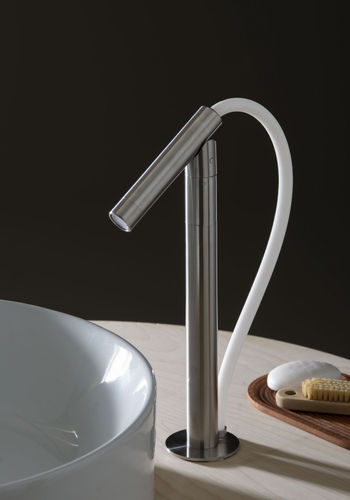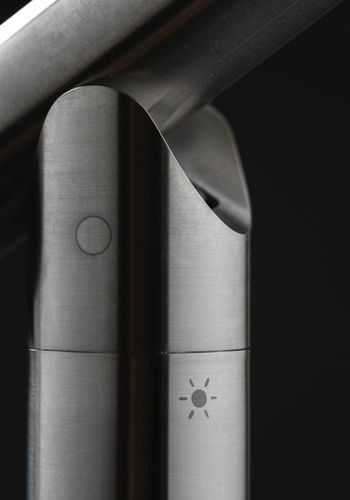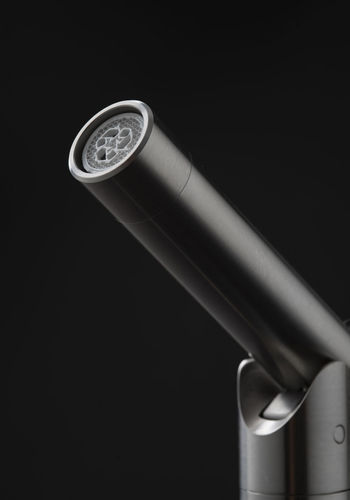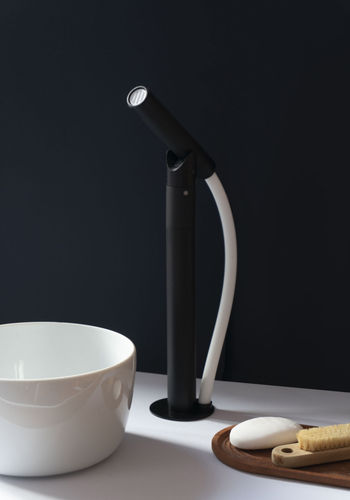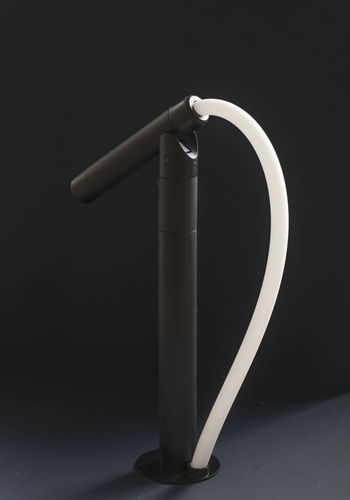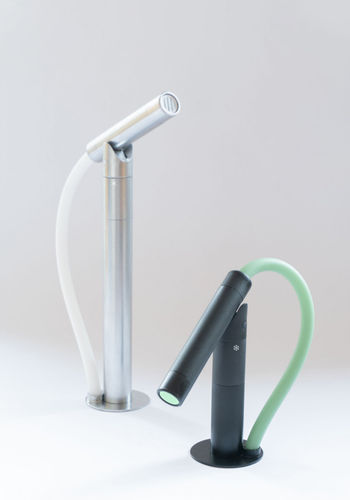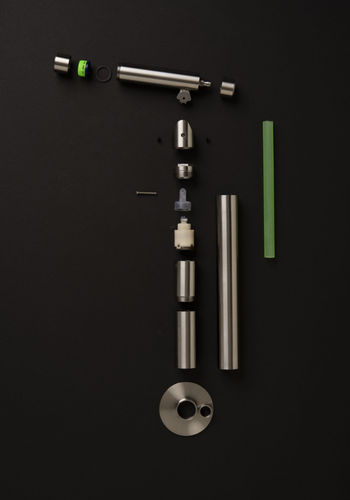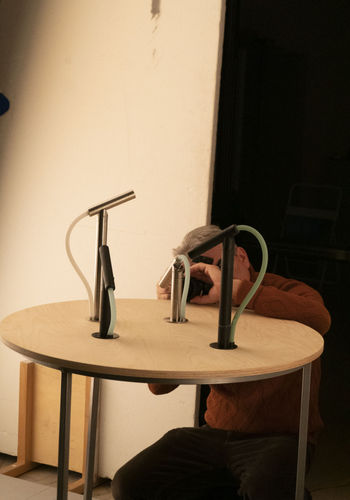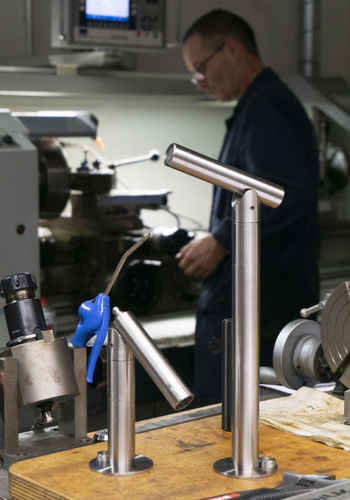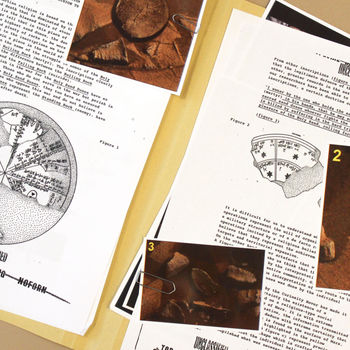Faucet Redesign
Marco Ciacci
Faucet Redesign:
rethinking water interaction in the domestic context through a process of inversion
This summer’s drought and the resulting inconveniences prompted the creation of this thesis, which aimed to find more sustainable water consumption methods. The water faucet was identified as the main protagonist of the interaction between the consumer and the water resource in the research. What has been noticed is that the faucet already works at its best but speaks the wrong language; the technologies within this product have evolved while the interaction and formal aspect remain unchanged since the 1930s, when mass production and consumption, the Streamline, and the single-handle faucet were born. The ability of objects to speak, shout, or whisper serves as a vehicle not only for their function but also for principles and ideals. A handle’s shape conveys not only how it works, but also whether it should be opened quickly, catapulting to the other side, or cautiously, sliding it sideways. Can a faucet, in the same way, convey principles of responsible consumption and sustainable habits in its operation and use? The outcome of this thesis is the (re)design of a faucet in which the faucet-consumer interaction and general formal aspect are revisited through a process of inversion in order to transform consumerist habits into responsible and conscious gestures. To do so, the blind gesture of opening the lever upwards at its maximum was inverted with a gentle descent of the faucet. In addition, the aerator filter, a forgotten and purposefully hidden element, has been brought to the foreground and redesigned, opening a new human-water conversation.
